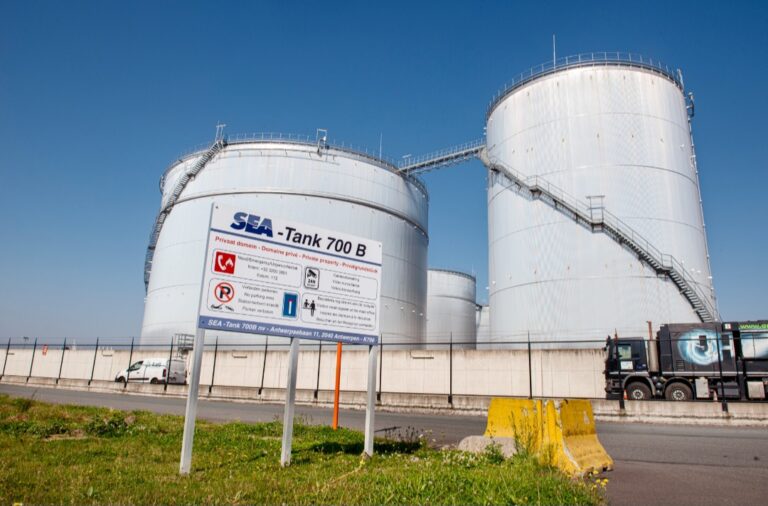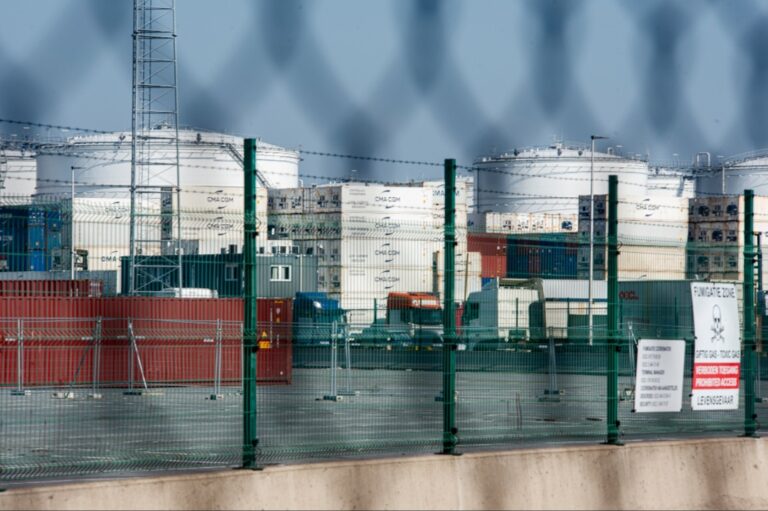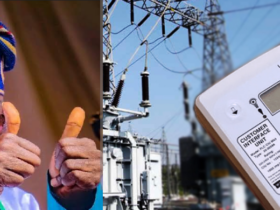Lagos, Africa’s most populous city, is grappling with the influx of high-sulphur fuels banned in Europe, raising significant health and environmental concerns.
These fuels, which fail to meet European standards, are exported to countries like Nigeria, where they are linked to increased risks of cancer, heart attacks, lung diseases, infertility, and premature births.
A SourceMaterial investigation revealed that laboratory-tested petrol samples from pumps in downtown Lagos contained sulphur levels as high as 800 parts per million—80 times above the legal limit in Europe and North America.
The investigation also found that one in six barrels of petrol shipped to Nigeria in the past year originated from a blending unit in Antwerp, Belgium. This facility produces high-sulphur “African-quality fuel,” a product some industry insiders derogatorily call “jungle juice.”
A former worker at the Immingham refinery in the UK, which supplies components for the blending, described the product as “horrible stuff,” saying, “It can’t be blended to the UK specification, so what they do is they ship it to West Africa. It enables refiners to maintain a high profit margin. It’s a loophole, where essentially they can sell their waste product.”
Exporting high-sulphur fuel is not illegal, but experts have criticized the practice. Martin Blunt, an oil markets researcher at Imperial College London, noted, “Refiners would have to pay to remove the sulphur, so a much cheaper way of doing it is to take a fuel with a medium sulphur content and create a low-sulphur fuel and a high-sulphur fuel, and sell them into different markets.”

The European nations of Belgium and the Netherlands recently capped sulphur levels in exported fuel, causing traders to reroute shipments to other regions. According to Data Desk analysis, when the Dutch government implemented a ban, exports shifted to Belgium and, more recently, to locations like Latvia and Spain.
Nigeria had introduced stricter sulphur limits last month, capping it at 50 parts per million. However, enforcement remains a challenge. Ademola Adigun, an adviser to Nigeria’s petroleum regulator, admitted, “The sulphur cap hasn’t been enforced because of the cost. Most people couldn’t afford it at the pump. So it means imported fuel can still be between 500 to 1,000 parts per million.”
READ ALSO: Peter Obi Donates N60 Million to University, School of Nursing
However, Global Campaigners, such as Public Eye and the UN’s former special rapporteur on toxics, have called for stronger European regulations. “Exporting companies and states have a responsibility to prevent the export of hazardous substances,” said Baskut Tuncak, referencing the 1998 Bamako Convention, which prohibits the export of hazardous waste to Africa.
Despite these calls for action, experts warn that without an EU-wide ban, high-sulphur fuels will continue to be rerouted to other African countries, exacerbating pollution and public health issues. As Ayomide Jones, a Lagos resident, lamented, “We are just killing each other because of the lack of policy and regulation.”
News Credit: Foundation for Investigative journalism(FIJ); Jess Staufenberg; Journalismfund Europe
Follow the Parallel Facts channel on WhatsApp: https://whatsapp.com/channel/0029VaCQSAoHgZWiDjR3Kn2E









Leave a Reply